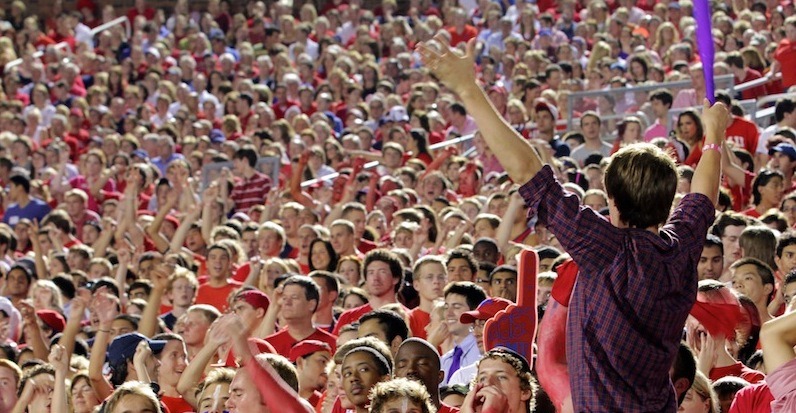The impact that hateful football chants can have on children
I’m not really that much of a football fan, at least not anymore, but I do still occasionally watch my home team, Norwich City. In particular, I usually go to what is my own personal ‘family derby’, which is Norwich City (the team of myself, my brother and my cousin) vs Bolton Wanderers (the team of my dad) – watching these two sides play against each other has become something of a tradition for us. And so that’s how I ended up at my first football game for a while the other Saturday, watching Norwich absolutely thrash Bolton by four goals and drinking in the lively atmosphere of the passionate away fans.
The culture of football fans is a fascinating one, with its diehard allegiances and mob-like hatred of the opposition and, even though I wasn’t exactly new to it, I felt myself looking at in a different way this time around. Perhaps it’s something to do with the prevalence of discussions on toxic masculinity that have been in the media recently, as I couldn’t help but feel slightly out of place in an atmosphere that is more thoroughly masculine than anywhere else I would go. One thing that struck me the most was the undeniable character of hatred that underlies most football chants since in a society where so much is perceived as offensive, it was unusual to see a space in which vocal hatred was so socially acceptable.
As uncomfortable as it might be to hear a child using bad language, it’s not really the swearing that we should be most wary of
What’s more, I found myself noticing that there were several children around me, which got me thinking about the influence that this culture of hatred could have on them. There was a point when one concerned mother politely asked some of the more vocal chanters to refrain from using swear words, worried that her daughter would pick them up. The fans agreed at first but they failed to keep that promise for very long and before the end of the game the young girl was happily chanting ‘the scum are going down’ along with everyone else.
The thing is, as uncomfortable as it might be to hear a child using bad language, it’s not really the swearing that we should be most wary of. Rather, it’s the normalising of hatred which football chants enable. When I heard two young brothers making up their own chant that: ‘Bolton Wanderers are the worst team ever’, there was no bad language being used, but there was still that element of ridicule and oppositional hatred (even if their assessment didn’t exactly seem inaccurate, based on the game we were watching).
It would be irresponsible to just ignore the possibility that there could be a negative influence
Of course, I understand that there is nothing wrong with a bit of antagonism towards the opposition in a game and I can already imagine that some may be rolling their eyes at my criticism of something that seems relatively harmless. Nonetheless, I think it would be irresponsible to just ignore the possibility that there could be a negative influence from this.
In fact, I have a memory from when I was a young child, that is admittedly laughable but still serves to illustrate the point. I had embraced this culture of hatred towards the opposition and in particular the rivalry in my own family towards Bolton Wanderers, who at the time were sponsored by Reebok. Thus, my reaction on seeing somebody at school with Reebok branded shoes was to tell them that I hated their shoes. Out of context, they were of course taken aback by my insult that had come completely out of the blue but to my infant mind, it had seemed a logical thing to say.
It’s important to be aware of the potential harm a culture like this could have
Now, the example may well seem silly, and could also be outweighed by the fact that it is one example amongst a childhood of generally not insulting people’s shoes. Furthermore, as somebody who attended football matches as a child, I think I turned out alright, so perhaps there shouldn’t be cause for alarm after all.
However, I’m not calling for anything radical, like keeping children out of football crowds or attempting to censor the crowds for children. I merely think it’s important to be aware of the potential harm a culture like this could have and to make sure that children are aware that acceptable rhetoric in a football chant is not usually acceptable rhetoric for everyday life. After all, there are children who attend football matches a lot more regularly than I did, and who have parents (let’s be honest, fathers) who are a lot more involved in this culture of hatred than my father ever was. And so perhaps they would have the potential to do or say something even worse than insulting a person’s shoes.

Comments